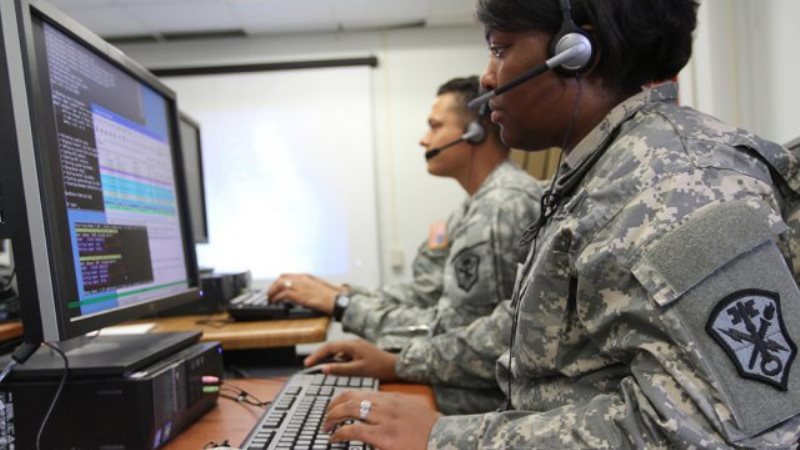
A top Army cybersecurity official emphasized Thursday that the U.S. needs the ability to make better decisions at a faster rate in order to gain information advantage over adversaries like China.
During AFCEA International’s TechNet Augusta 2024 on Aug. 22, Brig. Gen. Mark Miles – who most recently served two years as the J6 and chief information officer at USINDOPACOM before being reassigned as the deputy commanding general at the Army Cyber Center of Excellence this month – offered examples of where the military can leverage industry to improve in contested logistics and cybersecurity.
“At the service level, the contested logistics is something we can execute today,” Miles said during his morning keynote address on the final day of TechNet Augusta 2024. “If you’re looking at a theater capability from a joint level, it’s an area we need to work on. And I don’t know if I can formally put it in an ability that we have today.”
“Working through and establishing some joint logistics capability in the contested side is something we need to continue to focus on and work on as far as having the ability to make those decisions,” Miles said.
The general emphasized that leveraging contested logistics to gain an information advantage over an adversary is a “tough data problem” because of the need to pull analytics from different classification levels.
“[Its] a difficult problem,” he continued, adding, “it’s one that gets a lot of attention during every time we exercise, and I’ll say every iteration we do and get a little better at it, but an area that – especially as we get toward a green check mark on the ability to do it – an area we can and will continue to grow as a nation and as a force.”
Miles specifically said the Army should leverage industry tools that get into mining data to allow for predictive maintenance and, ultimately, better decision making.
On the cyber side of things, Miles said the Army still has some work to do to execute cybersecurity at scale, but that AI can help them get there.
“Do we have the ability against a first world adversary to execute cybersecurity at scale? I’ll tell you, we make a lot of assumptions. When we exercise, I would give us a ‘maybe,’” Miles said. “There are a lot of areas that we can focus – a lot of tools and help that we need from industry to help us get better at that ability.”
“A unique thing on the cyber defense piece is that we have a mountain of data that … we historically haven’t put into use, that we just haven’t had the tools or the ability to turn that around and inform our defense and make us more agile,” Miles said. “If there is an area that is ripe for maturation with the injection of some machine learning or artificial intelligence, I would argue, especially in DoD, it is the cybersecurity and the cyber defense side.”
Miles concluded his keynote address at TechNet Augusta by emphasizing that while these problems are challenging, they are solvable – especially with the help of industry partners.
“Absolutely emanating on everything that comes in the INDOPACOM headquarters is a sense of urgency and a timeline – a ‘26-‘27 timeline – that’s not dictated by budgets, not dictated by goals or objectives as much in the Pacific as it’s dictated by the adversary and the stated goals and objectives in writing, in five-year plans, written by potential threats and rivals in the Pacific,” he said.
“Everything I talked about today, everything I hit – they’re hard, but they are solvable in those timelines,” Miles concluded. “This is largely technology that exists today – industry best practice to be leveraged today. It’s a scale and it’s a complexity that in a lot of cases is unique to the DoD, but it’s all possible, and it’s all a difference that can be made in that timeline and in that time frame and support that level of urgency.”
